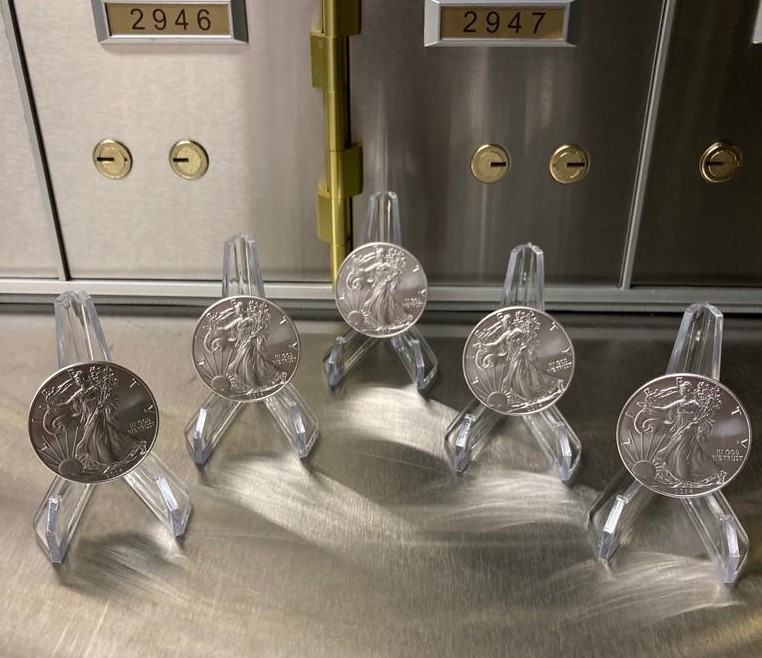
Gold and Geopolitics: How Do Global Events Affect Price?
Introduction:
The price of gold is influenced by a multitude of factors, namely: inflation, interest rates, economic conditions etc. One such factor that is instrumental in the movement of price is geopolitics. Geopolitics can be defined as the political, economic, and strategic interactions between states on a global scale. One such way in which geopolitics can influence gold price, is during times of tension between major nations.
Geopolitical tensions can have a profound impact on financial markets, and gold stands as an asset of stability during uncertain times. Understanding the relationship between global events and gold price is an important tool for investors to help in the navigation of volatile, economic markets.
Geopolitical tensions can range from trade wars and diplomatic disputes between nations to full-blown armed wars/conflicts and controversial changes in regime. The uncertainty that can be generated from events such as these can lead investors toward safe-haven assets i.e. gold.
Gold’s Safe-Haven Status:
Gold has a long-standing history with investors as being a reliable asset to hold during times of economic and financial uncertainty. The main reason behind this is the metal’s intrinsic value, along with the tangibility, durability, and liquidity characteristics that gold possesses. Intrinsic value, with regards to gold, is the fundamental value of the metal based on the unique properties that it holds, such as: scarcity, history, and cultural significance.
In times of economic uncertainty, investors will flock towards gold as a means of preserving capital. Gold serves as a hedge against potential currency depreciation and a hedge against the decline in value of what are known as ‘traditional’ assets i.e. stocks and bonds.
How Geopolitical Events Shape Price:
Throughout history, major geopolitical events have had a direct impact on the price of gold. This ranges from financial crises to wars between nations. Noticeable price fluctuations have been seen in gold in response to global turmoil. It is widely known that the potential for, and outbreak of, war can lead to a rise in the prices of precious metals. As it is the most extreme geopolitical event that could occur, it would be expected that investors would move their asset allocation from stock, debt, and currency markets to more risk-averse investments such as gold. As gold has acted as a store of value for thousands of years, the reliable reputation that it has is vital to the safe-haven status that it possesses.
Other than war, there are other historical examples of geopolitical events influencing gold prices.
Oil Crisis (1970):
In the early 1970’s, due to an ongoing political dispute in the middle east, an oil embargo was imposed against Western countries. This led to a surge in oil prices due to restricted demand, high inflation, and uncertain economic conditions. Investors turned to gold as a hedge against rising inflation and currency depreciation which led to a rise in the price of gold.
The Global Financial Crisis (2008):
After the collapse of Lehman Brothers in 2008, a worldwide economic downturn ensued. This was a fallout from the subprime mortgage crisis in the U.S., where U.S. housing prices fell rapidly due to an influx of delinquencies, foreclosures, and the devaluation of mortgage-backed securities. During this extreme financial crisis, many investors moved to gold, in fear of a prolonged recession and the potential rapid devaluation of the U.S. dollar.
Brexit (2016):
After it was announced that the U.K. would leave the European Union, many investors felt that the ramifications of the decision would include a devaluation in the nation’s currency. To hedge against currency risk, investors increased allocations of gold.
Banking Crisis (2023):
The instability within the banking sector from March-May 2023 was a significant factor in gold reaching new all-time highs. Over the course of 5 days in March, 3 banks in the U.S. failed, those being: Silicon Valley Bank, Silvergate, and Signature Bank. In May, First Republic Bank failed and was taken over by the FDIC immediately. In Europe, similar events occurred, with major banks failing and causing economic turmoil. Financial instability has had a long-term inverse relationship with the price of gold, with banking crises being instrumental in the movement of gold and other precious metals. When investors begin to withdraw deposits from banks, safe-haven assets such as gold are the primary alternative.
Central Banks and Geopolitics: Impact on Gold Reserves:
Central Banks are major players in the world of global finance with decisions regarding gold reserves being influenced by geopolitics. When there are heightened geopolitical tensions, Central Banks may increase gold reserves to hedge against a potential economic fallout. Central Banks accumulated gold at the fastest pace on record at the beginning of 2023, obtaining 125 tonnes within the first two months of the year. With increased tension between major nations, mainly Western nations v.s. Russia/China, many states began increasing gold reserves. A particular increase was noted in B.R.I.C.S. nations, with many believing the group to be in the midst of forming a new currency, backed by gold, to challenge the U.S. dollar’s position as the primary foreign reserve currency.
Conclusion:
Geopolitical events are proven to lead to a surge in the demand for gold, due to the metals stability, reliability, and reputation as a safe-haven asset. As mentioned, history has shown many examples of how events such as trade disputes, political battles, and banking & oil crises, can lead to a significant rise in the demand for gold, thus moving the price higher. Geopolitical events are factors that investors should take into consideration when analysing, and making projections, on the future price of gold.

